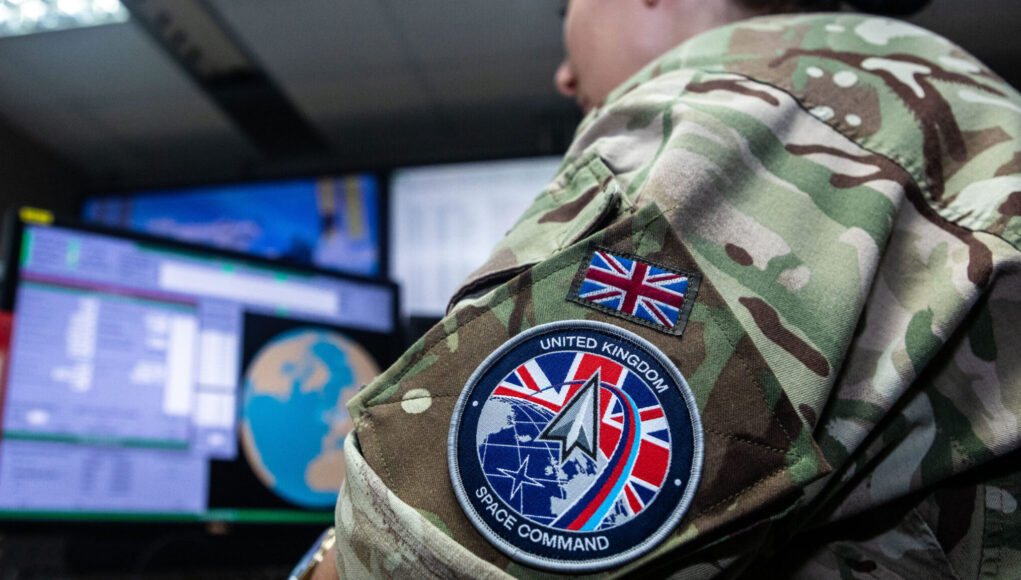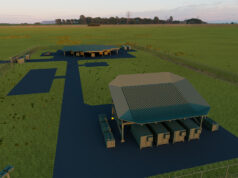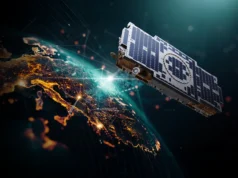UK Space Command and the UK Space Agency have recently announced a new contract with Spaceflux, a British space technology company, to construct a novel ground-based space camera-telescope system in Cyprus.
This development was disclosed on 22 November 2023, as per a press release from the Ministry of Defence and the UK Space Agency.
The project, dubbed ‘Nyx Alpha’, is geared towards monitoring objects in geostationary orbit, situated approximately 36,000km above the Earth’s equator. The primary aim of this telescope is to provide accurate position information about UK satellites. This is expected to aid in preventing collisions, protecting vital space assets, and enhancing the UK’s Space Domain Awareness (SDA).
This initiative is seen as a positive development for the UK’s expanding space industry, potentially supporting current employment and creating new opportunities in this sector.
A notable feature of the Nyx Alpha system is its design, which allows for the sharing of data with both partner organisations and international allies.
Spaceflux is set to undertake the construction, maintenance, and routine operation of the system. Tasking for the system will be carried out by analysts from the UK Space Operations Centre at RAF High Wycombe, operating under the UK Space Agency and UK Space Command.
The announcement of the contract award was made at the UK Space Conference in Belfast. Key figures including Air Vice-Marshal Paul Godfrey, Commander of UK Space Command, and Dr Paul Bate, CEO of the UK Space Agency, were present to make the announcement.











It’s quite interesting that this telescope is based in Cyprus. Is that because of our 5 eye’s commitments or better weather. I guess from that location it can view Geo stationary orbit across Asia, Africa and Europe which may explain the choice of location.
Its because of where in Cyprus.
High up a mountain, at the RAF Troodos retained site, an outpost of JSSU (C)
Troodos has 2 sites, the RAF Radar on Mt Olympus, and the sneaky bits on the other peak. This telescope will replace the existing located there.
Thanks good to know
Member of my family who served in the RAF many years back once served at RAF Troodos.
Depending how far back, he/she might have been in 33 SU.
Have to be honest mate. I don’t know about the 33 SU. He has never talked very much about what he did when based there. Often mentioned the Troodos Mountains though. 😁 He was based there well and truely back in the days of the cold war though. Cold war one..Guess l should say
Guess he has been a bit hush hush about that subject.
Understandably so. There is information available as to some of the capabilities of Golf Det, the part of JSSU stationed at Troodos. Suffice to say it, and the other stuff at Ayios Nikolios, are amongst the UKs most important capabilities.
Yes, as you say.. Very important capability, for the UK and NATO.
Is it also due to the fact that there is less light pollution, from towns and cities?
Absolutely.
Cyprus must give a better side view. I’m guessing it will be up in the Troodos Mountains near RAF Troodos. I look forward to seeing this project develop.
Yes, Troodos retained site.
Time to give Cyprus some GBAD ,DM 👍
Well yes, in an ideal world. Where would one place them? And what with? And can a GBAD system cover more than one place?
There are 5 separate locations, one of which, RAF Akrotiri, is quite widely spread out with various other locations within “the base”
If I had my way, Ayios Nikolios, Troodos, Akrotiri airfield, and Akrotiri Salt Lake would take priority over Episkopi and Dhekelia Garrisons.
Though Ay Nik and Dhekelia are quite close, as are Episkopi and Akrotiri, so maybe one could cover all using just one GBAD asset?
And if you give GBAD, same applies to the UK.
I think it’s one of them DM something useful something needed but not part of the plan . 🍺
Surely it’s already covered under Cyprus Air Command?
One would hope so 🤔
Naturally the EU will be considered as one of our essential partners in security……NOT!
Makes sense. Geosynchronous orbit is becoming crowded and that situation is only going to get worse in future.
Mick
77% of GEO space is currently occupied according to our definition (something like 1km² per satellite at different angles).
We tend to forget that, frequencies can be a problem. To avoid interference, a lot of space is needed around the satellites, which considerably limits the number of active satellites.
The GEO isn’t the only orbit, it’s just useful for simplifying and reducing the costs of certain systems/constellations.
Yep, good point. I didn’t know the 1 km^2 factor or the 77% occupancy – thanks – those are good numbers to know! It is really stark. Bumper to bumper. No one wants things any closer than that, but what is the alternative as more and more sats are launched and moving to parking orbits doesn’t always happen.
Although GEO isn’t the only orbit, for some systems there is no other easy way to do the job. If you want to sit above a certain longitude and observe, then there aren’t really any other options without multiple platforms, or simply accept coverage is going to be limited at certain times/locations.
Cheers,
Mick
Does that mean there’s an absolute limit on the amount of satellite comms available? Because more powerful satellites would just mean they have to be further apart, right?
Would be interesting problem to work out
On GEO yes.
Satellites on GEO have nothing to do with technical limitations you can use a lot of different orbits, and for certain uses, GEO is just optimal to reduce costs for a given performance.
The question will simply become “For the same cover as GEO, how much more that orbit will cost? How many more satellites and launch?”